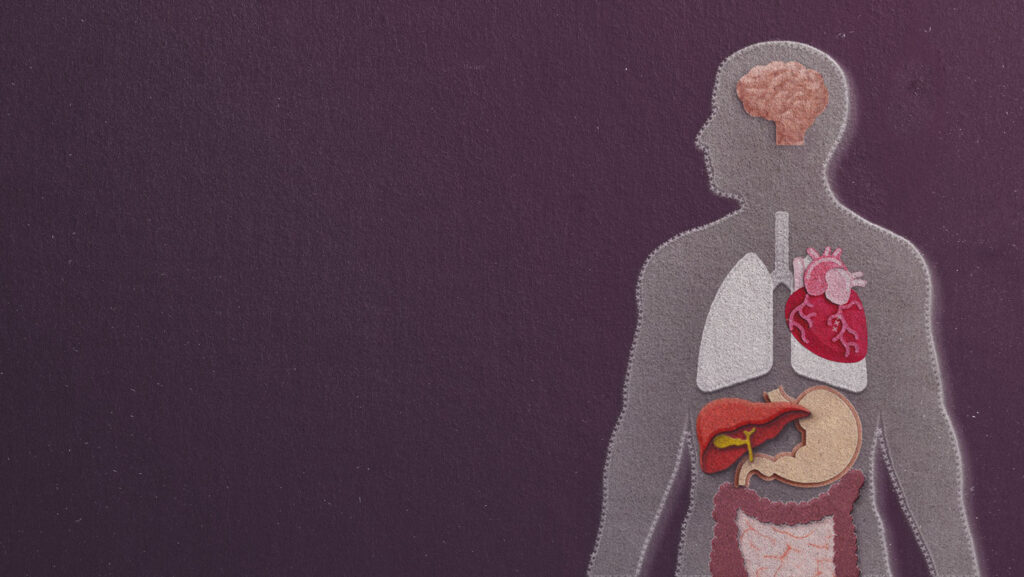You could be 45 on paper but 60 in your kidneys.
Turns out, your organs have birthdays of their own — and how well they’re faring may set the pace for your health, researchers report July 9 in Nature Medicine. Using data from nearly 45,000 people, scientists developed a blood-based test to estimate the biological age of 11 organs, providing a measure of how healthy or worn down each organ is. When a person has an organ substantially “older” than their actual age, disease risks tied to that organ surge. Conversely, extremely youthful brains and immune systems are linked to living longer, the results suggest.
“The fact that [the researchers] can create an organ age using proteins — and use it to predict diseases that you would expect to be predicted from that organ — is quite amazing,” says Sarah Harris, a molecular biologist at the University of Edinburgh who was not involved in the study.
Aging is far from a uniform process; each organ follows its own clock of decline. One way to track this hidden timeline, previously discovered by Stanford neurology researchers Hamilton Oh and Tony Wyss-Coray, is through the thousands of proteins coursing through our blood. Some unmistakably originate in the liver, while others can be traced to the lungs. Analyzing these proteins can reveal clues about how each organ is holding up.
In the new study, the team zeroed in on thousands of patients from the UK Biobank, a long-term database tracking the health of individuals ages 40 to 70 for up to 17 years. By assessing proteins in the blood, the team determined the average protein signature for, say, a 40-year-old liver or 70-year-old arteries.
Then, the researchers calculated “age gaps” for each person’s organs, determining how much older or younger their organs appeared compared to peers of the same age. Organs with age gaps in roughly the top 6th to 7th percentile were labeled extremely youthful, while those in the bottom 6th to 7th percentile were considered extremely old. About 1 in 3 people had at least one outlier organ.
Extremely aged organs came with higher odds of disease for that organ, the team found. For example, an extremely aged heart predicted a higher risk of atrial fibrillation and heart failure, and extremely aged lungs pointed to a greater risk of chronic obstructive pulmonary disease.
The effect was especially striking for the brain. People with extremely aged brains were more than three times as likely to develop Alzheimer’s. On the flip side, those with especially youthful brains had just a quarter of the usual risk. These odds held true regardless of which version of the APOE gene a person carried, the strongest genetic risk factor for the disease.
Patterns in the data also revealed surprising clues to a longer life. “Every old organ is linked with earlier death, and the more old organs you have, the earlier your death,” says Oh, now at the Icahn School of Medicine at Mount Sinai in New York City. “But looking at youthful organs, only the brain and the immune system were linked to longer life.”
Having an extremely aged brain nearly doubled the risk of death over 15 years. In contrast, those with exceptionally youthful brains saw their risk drop by 40 percent during the same period. When combined with a youthful immune system, the risk of death fell by 56 percent. Oh suggests this protective effect may come from better control of chronic inflammation, a key driver behind many age-related diseases.
The good news is that organ age isn’t necessarily fixed. Lifestyle choices also play a part. People who frequently smoked, drank alcohol or ate processed meats showed faster organ aging, while those who exercised regularly or ate oily fish tended to have younger organs. Oh believes that integrating organ-specific lifestyle changes could eventually become a powerful tool in preventive medicine. (He is a cofounder of the aging-detection company Teal Omics.)
However, aging expert Caleb Finch cautions that the study may have overlooked key socioeconomic factors. Because most UK Biobank participants are of European ancestry, organ age estimates might need adjustments for different ethnic, economic and environmental backgrounds.
But in the end, the clock keeps ticking. “Everybody wants a healthy life as possible,” says Finch, of the University of Southern California in Los Angeles. “And in the end, you can’t beat aging.”
Read the full article here


